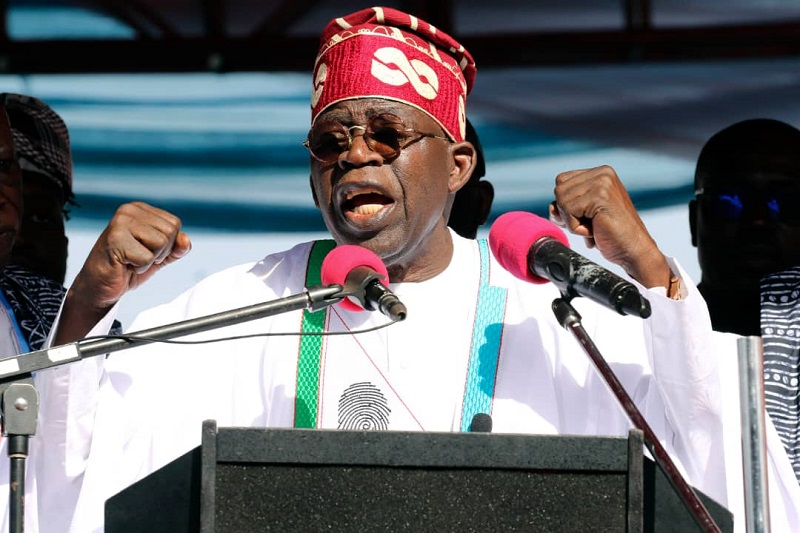
Nigerian stocks falling on Tinubu’s election
Nigeria's equity market, the Nigerian Exchange Ltd. (NGX), ended its five-day gaining streak on Wednesday, February 28th, after the announcement of Bola Ahmed Tinubu's emergence as the winner of the country's general elections on Wednesday, March 1, 2023.
According to People's Gazette, performance indices dropped by 0.53 per cent, leading to a market capitalization loss of N162 billion or 0.53%, to close at N30.238 trillion, as opposed to the N30.4 trillion recorded on Tuesday. The All-Share Index (ASI) also declined by 297.65 points to close at 55,508.61, compared to 55,806.26 in the previous session.
Nigeria's presidential election is likely to significantly impact the country's economy, with exchange rates at the heart of the ongoing debate. Financial pressures remain, with slower growth momentum and oil output creating headwinds for Nigeria's finances. Annual inflation decreased to 21.3 per cent in December but not significantly enough to pause hiking cycles. Interest rates are at 17.5 per cent, and foreign currency reserves dropped in January 2023 to $37.01bn.
Charles Mangin, Head of Foreign Exchange at the bank, provides context to the story by highlighting the economic challenges facing Nigeria, including slower growth momentum, oil output issues, high inflation, and reduced foreign currency reserves. These challenges led to Moody's downgrade of Nigeria's rating, which created renewed pressure on overseas borrowing capabilities and Eurobonds. The potential removal of fuel subsidies and changes to the country's exchange rate system are also expected to impact the foreign investment landscape. Devaluation may be considered, as the Naira exchange rate needs to reflect fundamentals, and changes in FX regulations may encourage USD to enter the country and kickstart the Nigerian economy.
As news of Tinubu's election victory spread, concerns about his economic policies and their potential impact on the Nigerian economy caused a sell-off in the stock market. Investors were particularly worried about the possibility of protectionist measures that could harm foreign investment in the country. However, analysts noted that the market remained relatively stable overall, and that there were still opportunities for profit in selected stocks.
Despite these concerns, there were also hopes that Tinubu's presidency could bring much-needed reforms to the Nigerian economy, particularly in the areas of infrastructure development and corruption. Many investors were optimistic that his administration would improve the business climate and attract foreign investment, which could help boost the country's economic growth and stability.
In the coming months, it remains to be seen how Tinubu's policies will impact the Nigerian economy, and whether the market will continue to experience volatility. However, with the potential for both risks and opportunities, investors are likely to keep a close eye on developments in the country's political and economic landscape. Culled from Pulse Ghana